Gas supply from Russia: why Poland and Bulgaria energy supplies have been shut off - will it impact Europe?
and live on Freeview channel 276
The Russia-Ukraine war has entered a troubling new phase today (27 April) after Vladimir Putin’s Kremlin regime cut gas supplies to Poland and Bulgaria.
In a move which has escalated tensions between Moscow and Europe, Russian state energy company Gazprom has said it will stop exports to the two countries via the Yamal and TurkStream pipelines.
Advertisement
Hide AdAdvertisement
Hide AdIt has sent natural gas prices soaring and threatens to deepen Europe’s - and the UK’s - cost of living crisis.
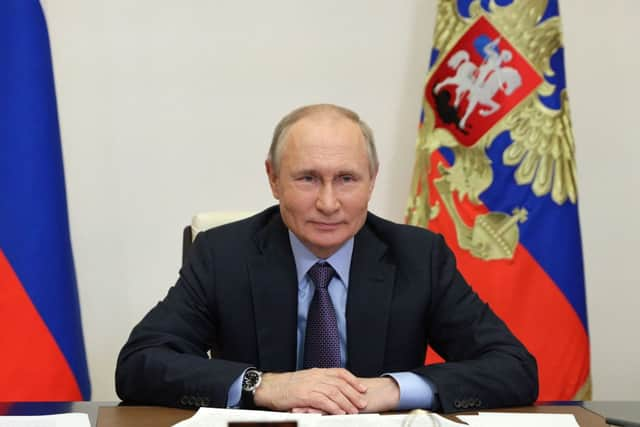

So why has Russia shut off these supplies - and what could it mean for Europe?
Here’s what you need to know.
How much Russian gas do Poland and Bulgaria import?
Russia’s state gas company Gazprom controls most of Russia’s vast natural gas supplies.
Given the company’s close ties to the Kremlin regime, it is widely seen as an extension of the Russian state.
Advertisement
Hide AdAdvertisement
Hide Ad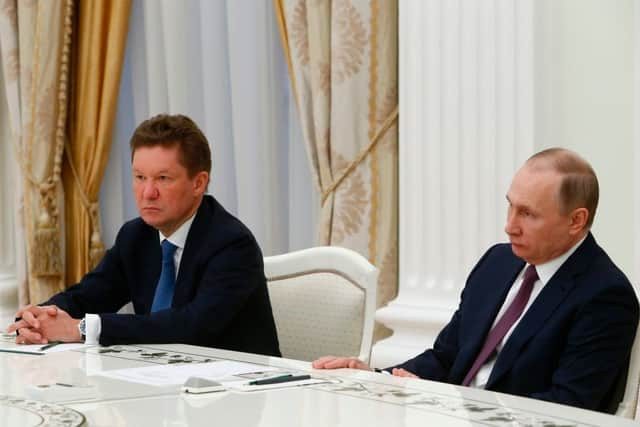

It provides Europe with around 40% of its gas needs, according to the European Union, although many European countries have signalled their intention to wean themselves off the cheap energy source.
Supplies from Gazprom go to Poland through the Yamal-Europe pipeline and cover about 50% of Poland’s needs.
Bulgaria’s gas imports from Russia come from the TurkStream pipeline that travels through Turkey and covers 90% of its consumption.
What’s happened to Russian gas supplies?
On Wednesday 27 April, Gazprom announced it had stopped supplies running to Poland and Bulgaria.
Advertisement
Hide AdAdvertisement
Hide AdThe Russian state company said the countries had failed to pay in Roubles.
The EU has told member states to continue to pay for their gas using the currency set out in their supply contracts.
Poland has confirmed its supplies have been cut off.
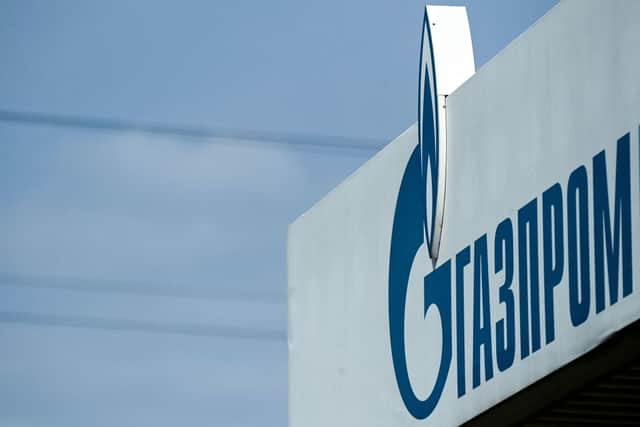

However, given Russia has been threatening the West with such a measure for a while, Poland says it has already been preparing to get supplies from elsewhere.
It has expanded capacity at a liquid natural gas terminal in the Baltic in recent years.
Advertisement
Hide AdAdvertisement
Hide AdThe country said it had also built up reserves, and that they were 76% full.
Polish climate minister Anna Moskwa said there was no need to draw gas from reserves and gas to customers would not be cut.
Bulgaria’s gas supplies have still been running, the country’s government said, despite Gazprom’s announcement.
Reuters news agency reported Bulgaria’s energy minister Alexander Nikolov had accused Russia of using energy “as a political and economic weapon”.
Advertisement
Hide AdAdvertisement
Hide AdWhy has Russia said it would cut off gas supplies?
Given Europe’s dependence on Russian gas imports, Vladimir Putin has frequently used supplies as a lever to secure political concessions over the last decade.
What’s happened to Poland and Bulgaria appears to be an extension of this tactic, as Russia attempts to deter Europe and the wider West from intervening in its invasion of Ukraine.
NATO and EU member Poland has been Ukraine’s biggest ally since the war began and has taken in millions of refugees, while Bulgaria - another EU and NATO state - has sent some military aid and denounced the Russian invasion.
Poland had also sanctioned 50 entities and individuals on Tuesday (26 April).
Advertisement
Hide AdAdvertisement
Hide AdMeanwhile, Bulgaria’s PM Kiril Petkov and other senior officials from the country are travelling to Kyiv for talks on Wednesday.
On 23 March, almost a month into the conflict, President Vladimir Putin decreed “unfriendly” countries - i.e. those which introduced sanctions against Russia - would have to pay for their gas in Russian Roubles.
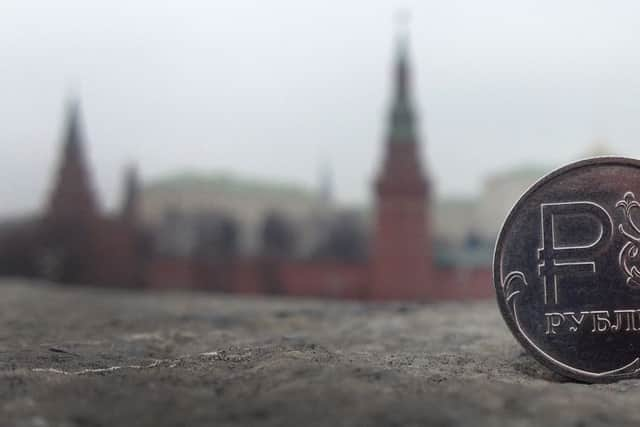

It came after the Rouble had plummeted by around a fifth since the so-called ‘special military operation’ had begun due to Western sanctions.
Previously, around 58% of payments received by Gazprom were in Euros, 39% were in US Dollars and most of the remaining 3% were made in Sterling.
Advertisement
Hide AdAdvertisement
Hide AdPutin said the changes would come into effect when the next payments were due in April.
But despite many countries, including Poland and Bulgaria, accusing Moscow of breaching the terms of their long-term supply contracts, the Kremlin has followed through on its threat.
What could Russian gas switch off mean for Europe?
Russia turning off the taps for Poland and Bulgaria was seen as a warning to the rest of Europe.
These suspicions were confirmed later on Wednesday when the pariah state said other countries could soon find themselves without Russian gas.
Advertisement
Hide AdAdvertisement
Hide AdEU Commission president Ursula von der Leyen described this shot across the bows as “blackmail”.
“Today, the Kremlin failed once again in its attempt to sow division amongst member states. The era of Russian fossil fuel in Europe is coming to an end,” she said.
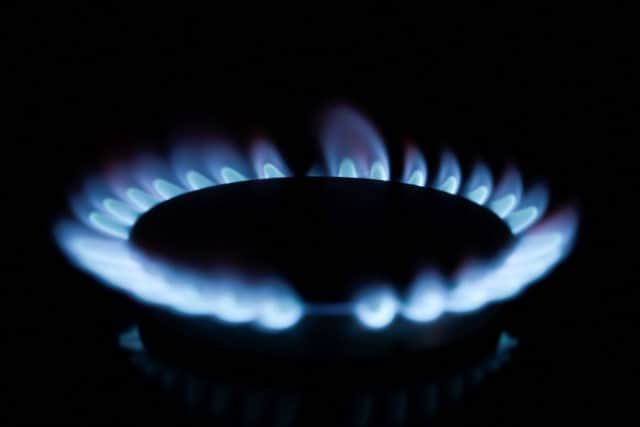

The EU plans to reduce its dependence on Russian gas by two-thirds by the end of the year.
But despite introducing sanctions on almost every other facet of trade with Russia, Western leaders - particularly those in continental Europe - have so far rejected calls to ban energy imports from the country.
Advertisement
Hide AdAdvertisement
Hide AdEU gas imports have fluctuated between €200 million (£168 million) to €800 million (£673 million) a day - money that has allowed Russia’s economy and war machine to continue to operate.
Ukrainian President Volodymyr Zelensky has repeatedly criticised Europe for this continuing loophole in sanctions.
However, the latest threats appear to have focused minds in countries, like Germany, that are heavily dependent on Russian gas.
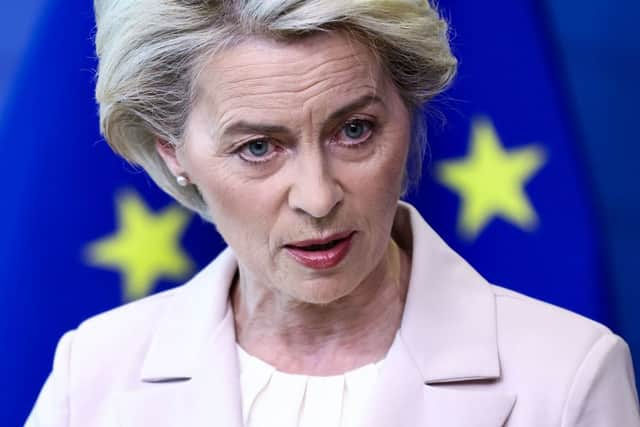

Germany’s climate and economy minister Robert Habeck said on Tuesday (26 April) that the country could end its dependence on Moscow within "days" if it faced a gas embargo.
Advertisement
Hide AdAdvertisement
Hide AdWhile this claim would be significant if true, there is still a major problem facing Western countries should Russia turn the taps off - prices.
Gazprom’s announcement sent European natural gas prices soaring by as much as 24% on Wednesday, PA reported.
In part, this is because Russia is the world’s second biggest producer of natural gas.
Should further Russian gas embargoes follow, prices are only likely to go higher as markets turn to a diminishing pool of alternatives.
These would be likely to be passed onto the consumer at a time when Europe is facing a major cost of living crisis.
Comment Guidelines
National World encourages reader discussion on our stories. User feedback, insights and back-and-forth exchanges add a rich layer of context to reporting. Please review our Community Guidelines before commenting.
